Industrial turning point: mergers and acquisitions imminent, who will be the next disruptor
![]() 04/01 2025
04/01 2025
![]() 504
504
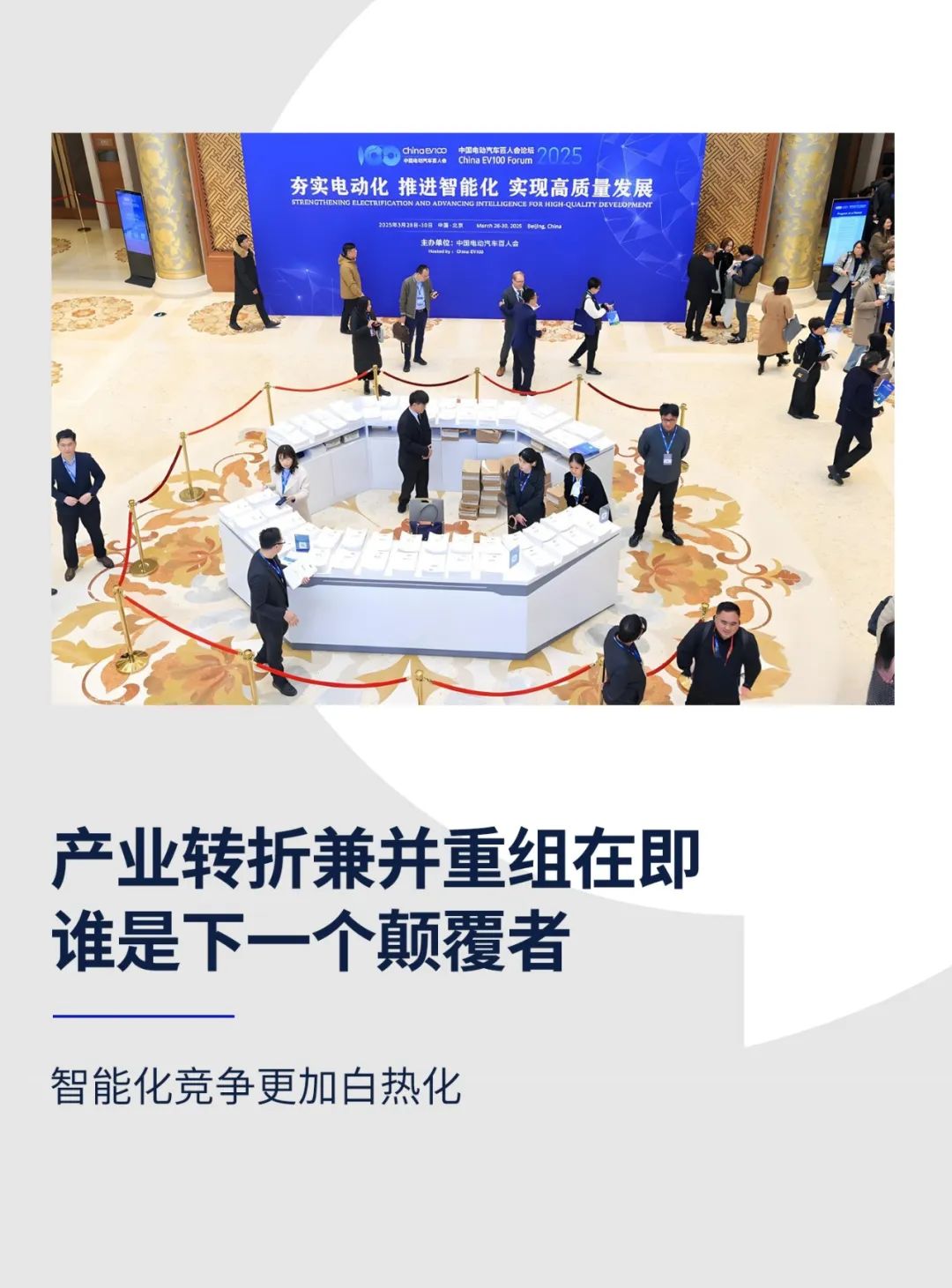
Author | Yang Lu
Editor | Zhen YaoProduced by | Bangning Studio (gbngzs)
On March 29, the 2025 China EV100 Forum entered its strategic discussion session - the High-Level Forum.
As the academic high ground and decision-making vane of this year's conference, the High-Level Forum was upgraded to a full-day agenda for the first time. The first half was themed "Consolidating Electrification and Promoting Intelligence," while the second half was themed "Achieving High-Quality Development of the Automotive Industry," constructing a thought storm of in-depth dialogue among policy, technology, and industry.
Chen Qingtai, chairman of the EV100, delivered a keynote speech at the age of 86, attracting the attention of the entire audience. He said that China's annual production and sales of new energy vehicles exceeded 10 million in 2024, and the industry has entered a stable development stage driven by the market. To continue consolidating and developing this achievement, he put forward five suggestions.
Wan Gang, chairman of the China Association for Science and Technology, pointed out that the next focus for China's auto industry will be to advance from product intelligence to industrial intelligence. Especially in the construction of intelligent connectivity, it is necessary to continue to build cloud computing platforms with deepened AI development, enabling collaboration between cloud and vehicle ends to achieve embodied intelligence in intelligent connected vehicles.
Gou Ping, deputy director of the State-owned Assets Supervision and Administration Commission of the State Council, directly addressed the pain points of the industry in his speech and proposed the development criteria of "three noes and three efforts": opposing price wars, parameter wars, and gimmick wars, and advocating the construction of a healthy industrial ecology through quality, experience, and service. In response to the current window period for industrial restructuring, he proposed three strategic directions: accelerating strategic reorganization of central enterprises to create world-class automotive groups, promoting professional integration within enterprises, and supporting independent brands in building a global operating system.
Xin Guobin, vice minister of the Ministry of Industry and Information Technology, disclosed three landmark achievements: annual production of new energy vehicles exceeded 10 million for the first time, the penetration rate of new vehicles with L2-level intelligent driving reached 57.3%, and full-year exports surged to 1.284 million. These data outline the explosive growth trajectory of China's new energy vehicle "production-sales-research" chain, confirming its strategic position as the core driving force for the green transformation of the global automotive industry.
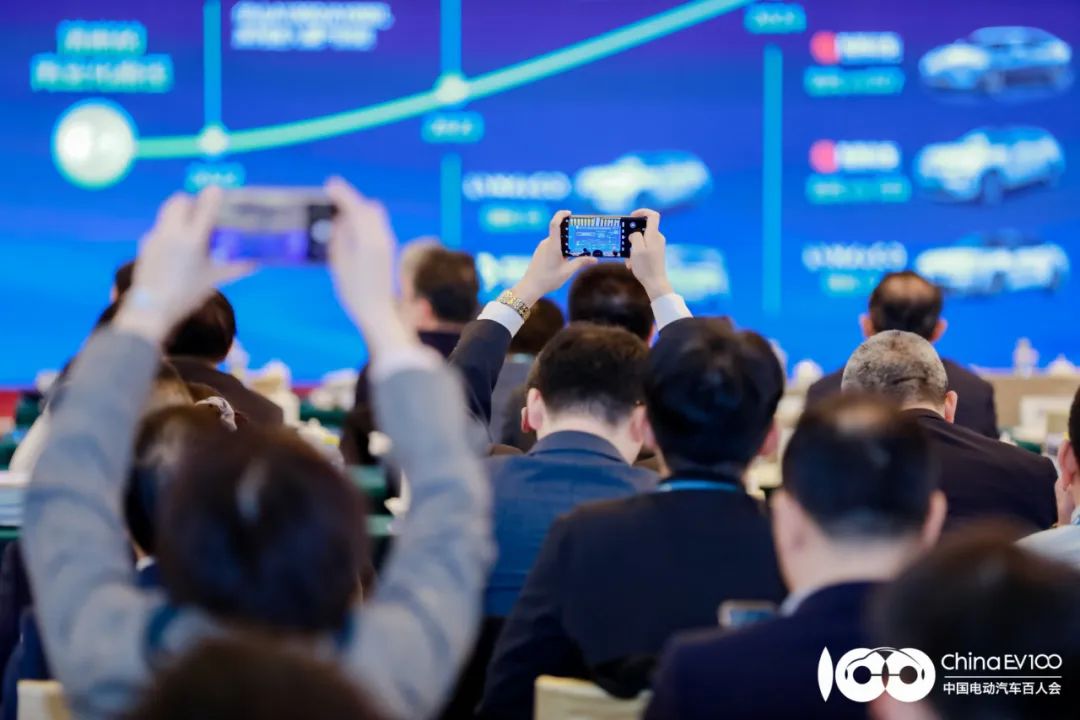
In the technology foresight session, Ouyang Minggao, academician of the Chinese Academy of Sciences, defined 2025 as the "first year of the explosion of vehicle intelligence" but believed that it was not yet appropriate to mention "autonomous driving for all." Zhang Yaqin, dean of the Institute for AI Industry Research (AIR) at Tsinghua University, revealed the two underlying logics of driverless technology: exponential improvement in safety efficiency and structural reduction in travel costs.
At the High-Level Forum, Wang Chuanfu, chairman and CEO of BYD; Yin Tongyue, chairman of Chery Holding Group; Deng Chenghao, vice president of Changan Automobile and CEO of Deep Blue Automobile; Gan Jiayue, CEO of Geely Automobile Group; Gao Rui, deputy general manager of GAC Group; Li Bin, chairman and CEO of NIO; Li Xiang, chairman and CEO of Li Auto; He Xiaopeng, chairman and CEO of XPeng; Lei Jun, founder, chairman, and CEO of Xiaomi Group; Gao Xiang, president and CEO of BMW Group Greater China; and Roelant de Waard, president of Audi China, among others, offered suggestions on how to advance the modernization of China's automotive industry.
From the corporate perspective, the development of new energy vehicles so far has seen the differentiation of new force auto companies, the innovation of traditional auto companies, and the rejuvenation of the automotive supply chain.
In these processes, those who have survived death, turned crises into safety, and strived to break through have constituted today's industrial landscape - a microcosm of this year's EV100 Forum.

Lei Jun controlled the entire scene
This year is the first time Lei Jun has participated in the EV100 Forum. Since becoming a traffic dominator at last year's Beijing Auto Show, every appearance of his has carried its own gravitational pull, wherever there is a whirlwind of people, Lei Jun is there. This time was no exception, and even when he went to the restroom, the door was surrounded by crowds, all holding their phones and waiting.
Xiaomi's first vehicle, the SU7, has only been on the market for a year, but Lei Jun and Xiaomi have brought about a Mars-hitting-Earth effect on the automotive industry, triggering other auto companies to follow suit and even discussions and reflections across the entire industry. At this forum, this phenomenon has only increased.
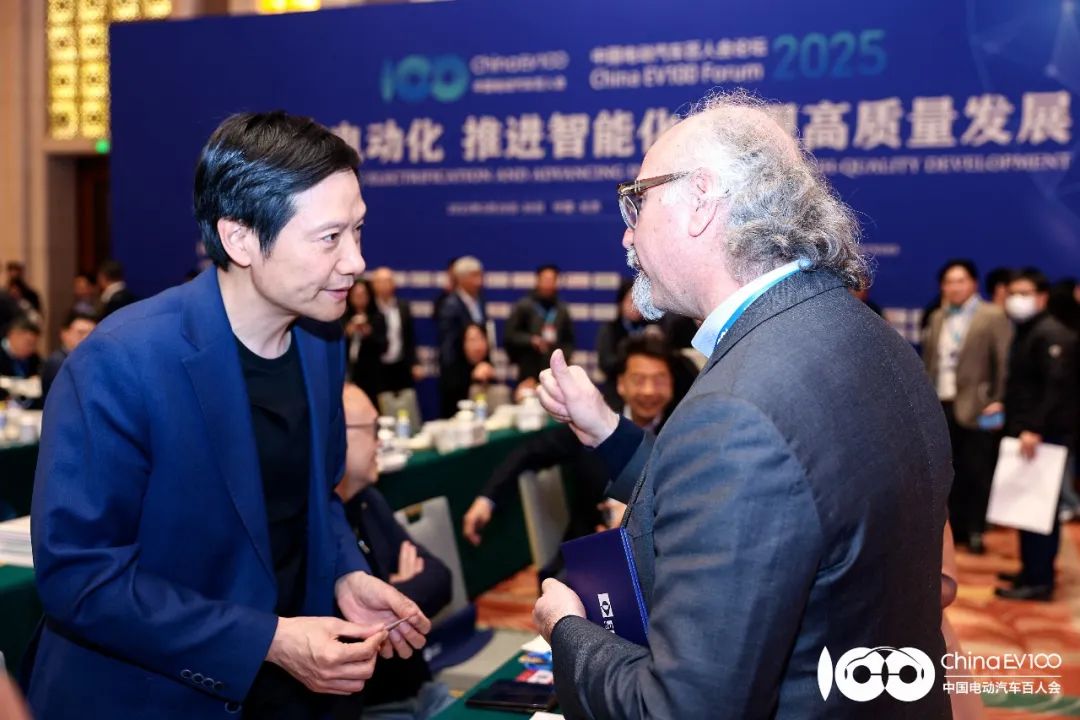
Originally, Lei Jun's speech was scheduled for the morning of the 29th, but it was temporarily moved to the afternoon. However, Lei Jun's name was everywhere in the morning forum.
Deng Chenghao joked, "We feel like celebrating Chinese New Year every time we trend on Weibo, but Xiaomi and Lei Jun are celebrating Chinese New Year every day, sometimes even multiple years in a row, which poses quite a challenge for us."
"We used to think that having good products was enough, but now, it's very important to combine a good product with good traffic," Deng Chenghao continued. Auto sales used to be first directed towards B-end dealers and then towards C-end consumers, but now OEMs and users are directly connected, and the traditional distribution paradigm has shifted to an intelligent marketing model, which Changan Automobile is also exploring.
Zhang Yaqin even prepared a special PPT for Lei Jun, discussing the cooperation between AIR and Xiaomi in the fields of robotics and autonomous driving.
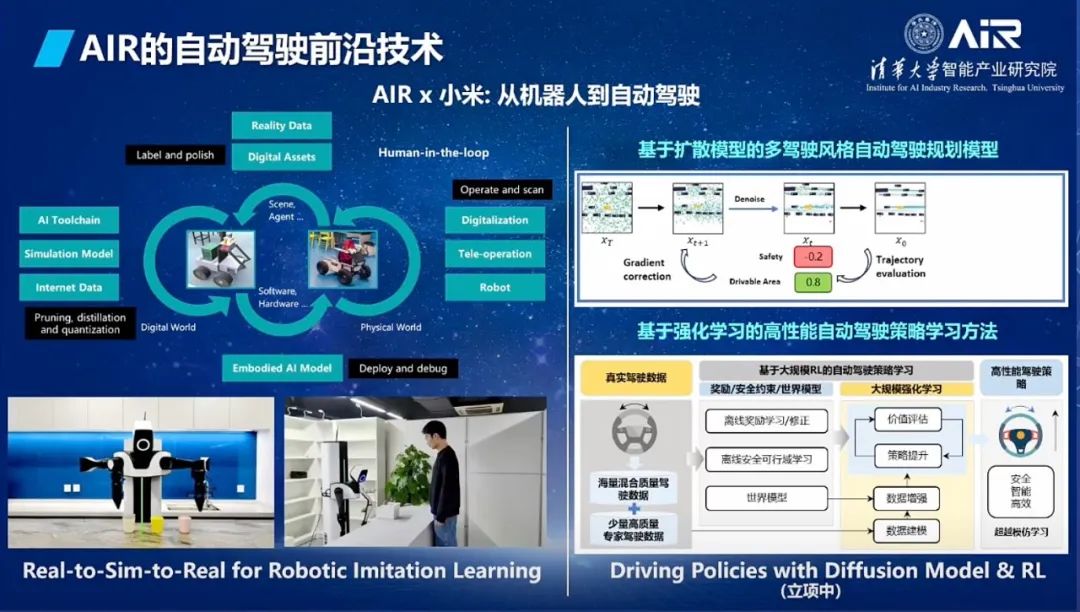
In the afternoon, when Yin Tongyue gave his speech, he humorously opened with the remark that sitting next to Lei Jun, he enjoyed the benefits of being the oldest Lei Jun fan.
Lei Jun was not only frequently mentioned by guests on stage but was also "surrounded and intercepted" by participants off stage. Stirring up the automotive industry with his own strength is the charm of Lei Jun and the strength of Xiaomi.
The Xiaomi SU7 ultra was launched on February 27, and orders reached 10,000 within three days, which was originally the full-year target. Lei Jun explained at the forum, "People say our goal was set too low, but in fact, only 121,000 luxury sedans priced above 500,000 yuan were sold in 2024."
The successful Xiaomi Automobile has become the "darling" of the auto industry, and Xiaomi has brought some inspiration to the industry in terms of marketing models and intelligent technology. "As a technology company, doing a good job of intelligence is our duty," Lei Jun said.

"NIO, XPeng, and Li Auto" on the same stage but with different fates
This time, the three leaders of "NIO, XPeng, and Li Auto" appeared at the High-Level Forum and took a group photo again, replicating the past. However, at this point, the three companies have already diverged. Fortunately, they are all still alive, but their fate trajectories have deviated.
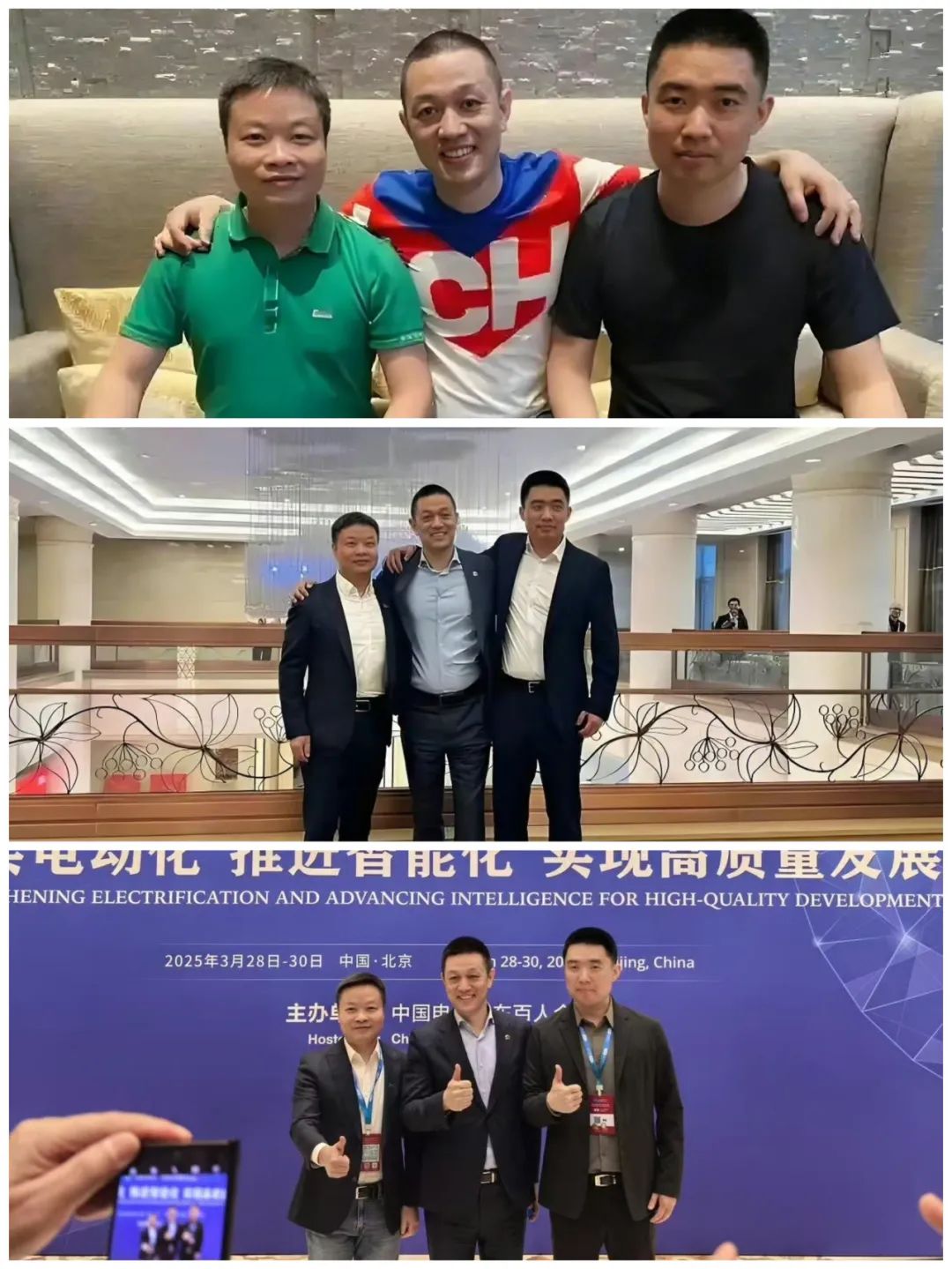
Recently, there has been the most heated discussion in the industry about NIO, and Li Bin is wielding the knife internally to carry out reforms for cost reduction and efficiency enhancement, striving to achieve profitability in the fourth quarter of this year. At this year's EV100 Forum, he was also one of the busiest people.
In contrast, He Xiaopeng has a sense of having been to the brink of death and then coming back to life. Over the past two years, he has made a series of reforms to the company and has achieved a breakthrough in sales after much trial and error. Li Xiang, on the other hand, is obviously more calm, and at the EV100 Forum, he talked about the experience of surviving and even thriving.
At 10 am on March 29, before Li Bin's interview time was up, the interview room was already packed to the door. According to his next schedule, Li Bin still needed to introduce NIO's products in the exhibition area, ride in the ET9 with Wang Chuanfu, and socialize with other industry leaders, before delivering a speech on stage at 5 pm. Li Bin's intense schedule demonstrates his dedication.
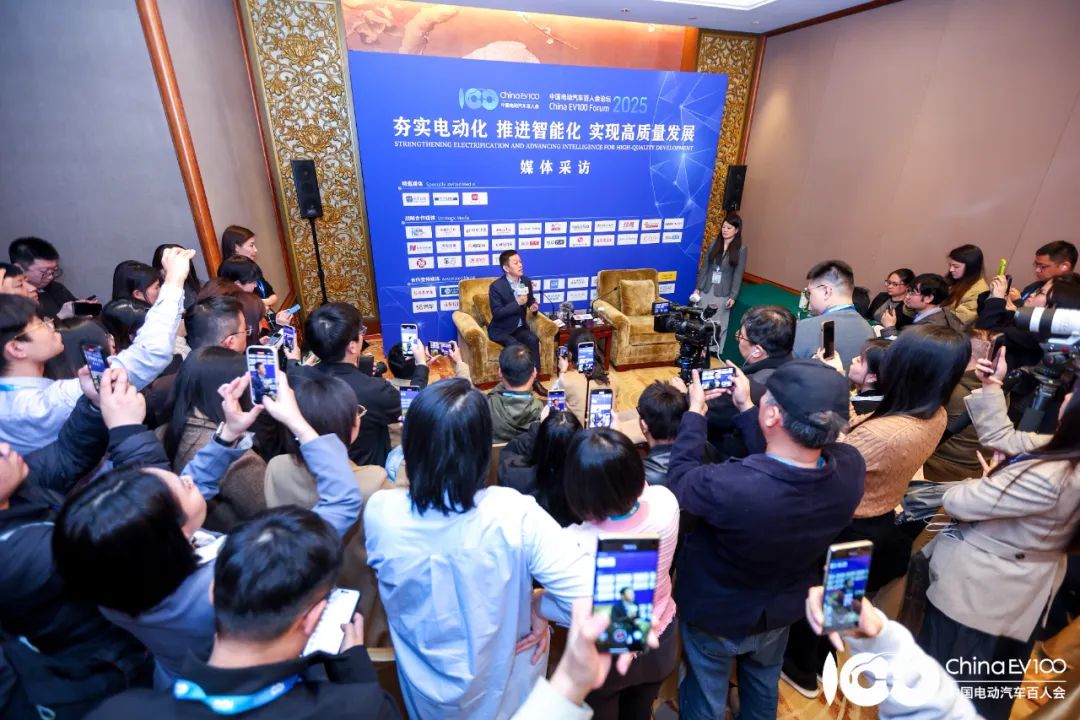
Li Bin was the only CEO of a new force auto company arranged for media interviews by the forum. In his speech, he responded to recent developments, acknowledging that NIO has paid a lot of tuition in management and operations, inevitably wasting a lot of money, but stating that it will not lower its requirements in research and development.
Over the past three years, NIO's R&D investment has continued to be high, at 10.8 billion yuan in 2022, 13.4 billion yuan in 2023, and 13 billion yuan in 2024. In particular, there has been huge investment in underlying R&D. Its operating system R&D costs 24,000 yuan per person per month, and the cost of self-developed chips is even higher, comparable to the investment in one chip and 1,000 battery swap stations.
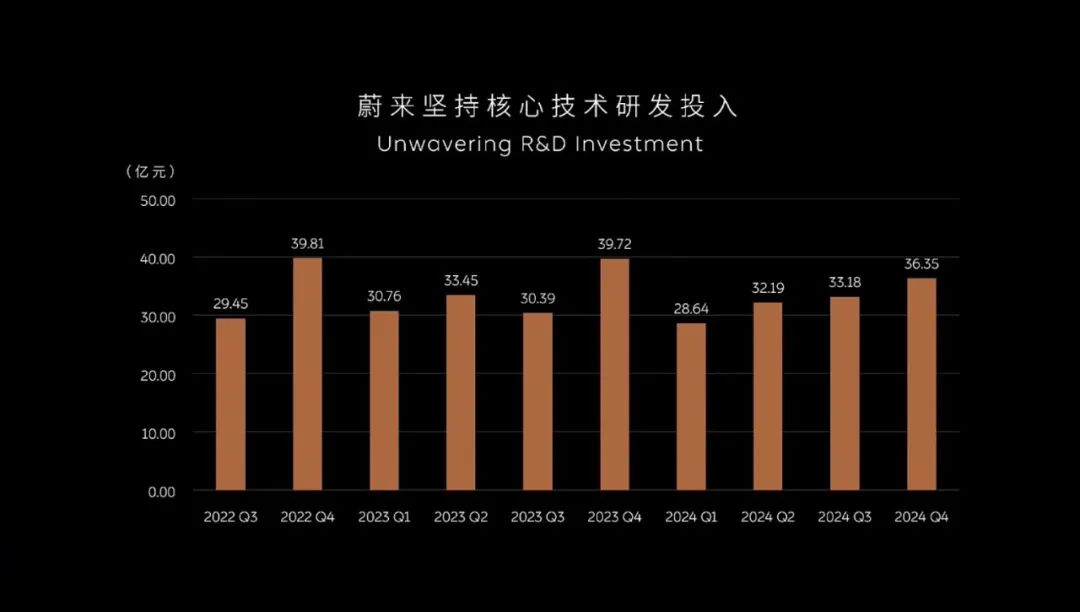
"NIO is indeed under great pressure this year. We will comprehensively improve our management capabilities and operational quality to strive for profitability as soon as possible," Li Bin said.
As one of the few profitable new force auto companies, Li Xiang shared his "martial arts secrets". He said, "Why did Li Auto think it could stand out? My answer is that we understand how to develop large-scale software better than all traditional automakers, and we understand how to build a car better than all internet companies. This is the reason why we have survived and performed differently over the past decade."
On March 27, Li Auto announced the open sourcing of its Xinghuan operating system, which was developed by a team of 200 people over four years with over 1 billion yuan in R&D expenses. At this forum, Li Xiang's speech focused on this.
The open sourcing of the Xinghuan operating system includes three parts - vehicle control OS, intelligent driving OS, and communication middleware, which can fully replace the corresponding functions of the AUTOSAR operating system after open sourcing. In addition, whether it is the chip ecosystem, application ecosystem, tool ecosystem, or user account ecosystem, they all belong to the users, and Li Auto will not intervene.
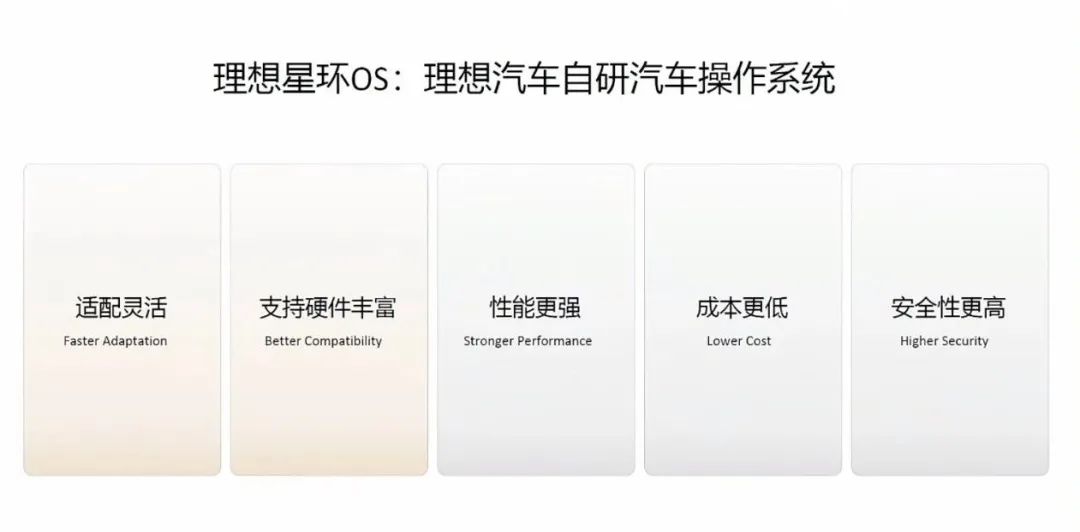
"Today, I'm talking about the same thing as Li Xiang, which is not purely intelligence and electrification. Today, I'm talking about flying cars," He Xiaopeng said, not following the conventional playbook. Although the forum theme of the conference was "Consolidating Electrification and Promoting Intelligence," he specifically talked about flying cars, the star of the future.
He believes that in the next 10-20 years, the sales volume of flying cars will account for about 20% of that of cars, while today this figure is 3%-5%. Therefore, when the global auto market has a market size of 10 trillion dollars a year, the flying car market will reach a size of 2 trillion dollars.
However, there is still controversy over whether flying cars are an upgraded or downgraded version of cars. He Xiaopeng appealed for the state level to coordinate flying cars and conduct flexible supervision and construction of upgraded versions of flying cars or drones in the future, in order to make low-altitude economy reproduce the vigorous development of China's new energy vehicles and achieve a positive cycle from small to large and from weak to strong.
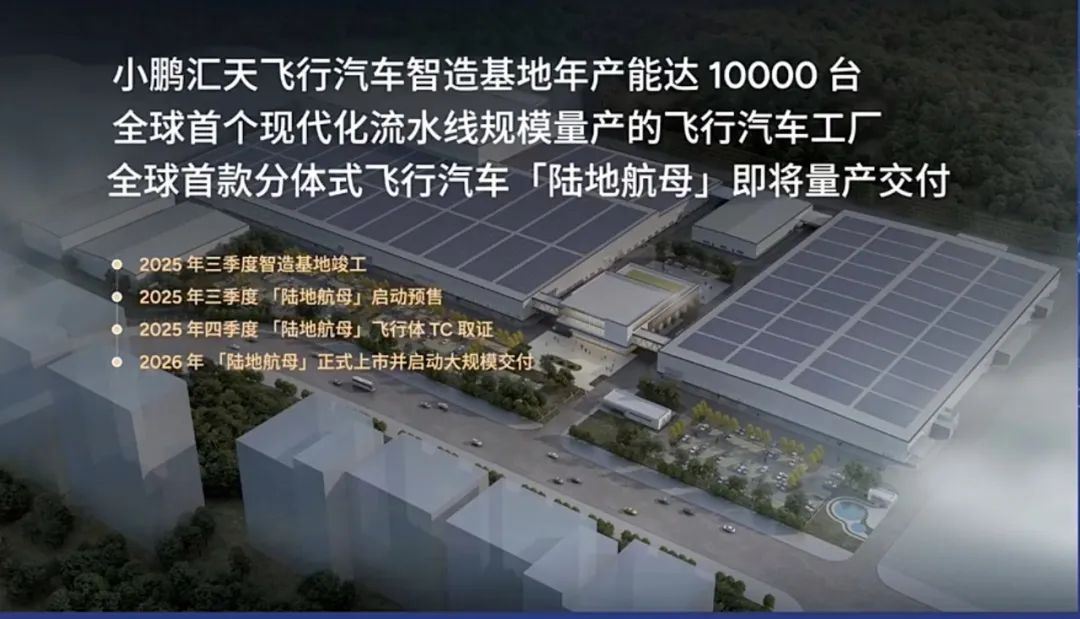
Deng Chenghao also proposed that Changan Automobile is promoting industries such as flying cars and embodied intelligence, but flying cars face the bottleneck of insufficient convergence between automotive and aviation regulations. "We have to make many applications when conducting tests. For example, where is the redundancy boundary of L3, and relevant regulations are not clear."
In terms of underlying technology research and development, all three companies live up to the title of new force. At this year's EV100 Forum, Li Xiang and He Xiaopeng did not just talk about cars. However, in Li Bin's speech, the content about the ET9 occupied a large portion, after all, it is a work that integrates NIO's technology and the result of Li Bin's efforts. Li Bin said, "I want to be the hardest-working person in 2025."

Traditional auto companies push for AI
Traditional auto companies are vigorously abandoning "tradition" and sparing no effort to transform towards AI. Since 2025, elements such as intelligent driving and AI have permeated the communication of auto companies.
As a post-85 auto company CEO, Deng Chenghao dares to speak and act. Currently, driven by the reform of intelligent connectivity in the automotive industry, cross-border cooperation and cross-border communication have become the new normal of the industry. He frankly stated that for Changan Automobile, intelligence still needs to catch up.
In the past few years, when iterating its strategy, Changan first regarded efficiency as its core competitiveness, later added software, and the most recent update included efficiency, software, and AI, listing AI as a core competitiveness and striving to accelerate catch-up in the AI racetrack.
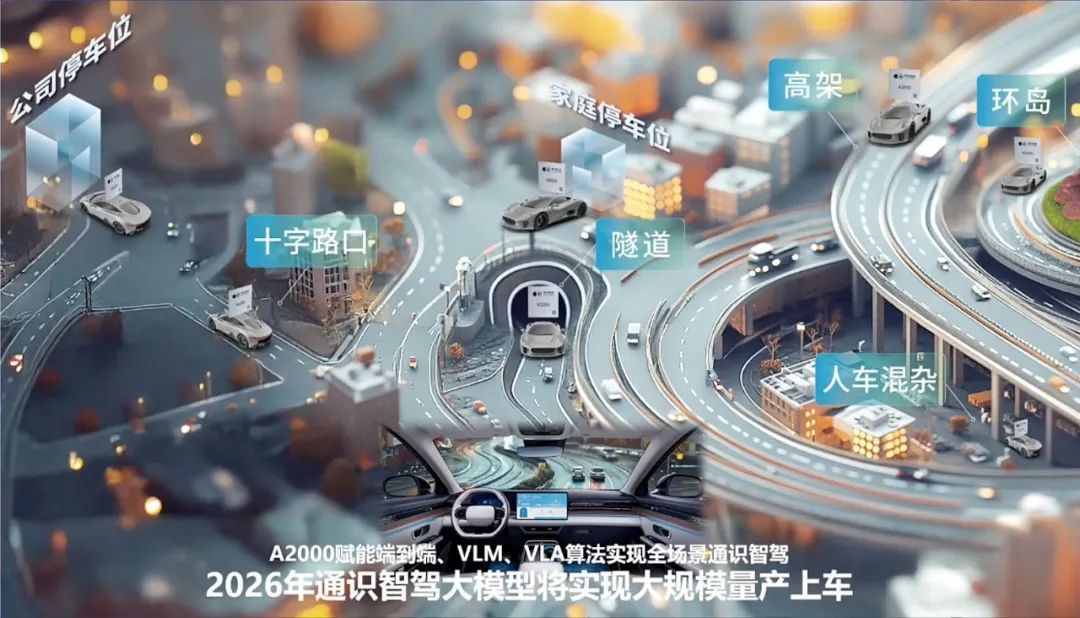
"Without intelligent driving capabilities, there is no ticket to participate in future competition." Gao Rui, deputy general manager of GAC Group, believes that at present, three-dimensional travel is gradually breaking the boundaries of traditional industrial ecology. During the two sessions of the National People's Congress and the Chinese People's Political Consultative Conference this year, emerging fields such as low-altitude aircraft and humanoid robots have attracted much attention. They are technically interconnected with smart new energy vehicles, share supply chains, and reuse production processes. Under the trend of integration, a new eco-system integrating land, sea, and air is being formed, which is expected to release a market space exceeding 10 trillion yuan.
Yin Tongyue also mentioned the intelligent layout multiple times in his speech: "In terms of intelligence, Yu Kai (founder and CEO of Horizon Robotics) has greatly empowered us. I specifically went to Beijing to see the intelligent driving level of Horizon Robotics. The car is very smart and can grab lanes."
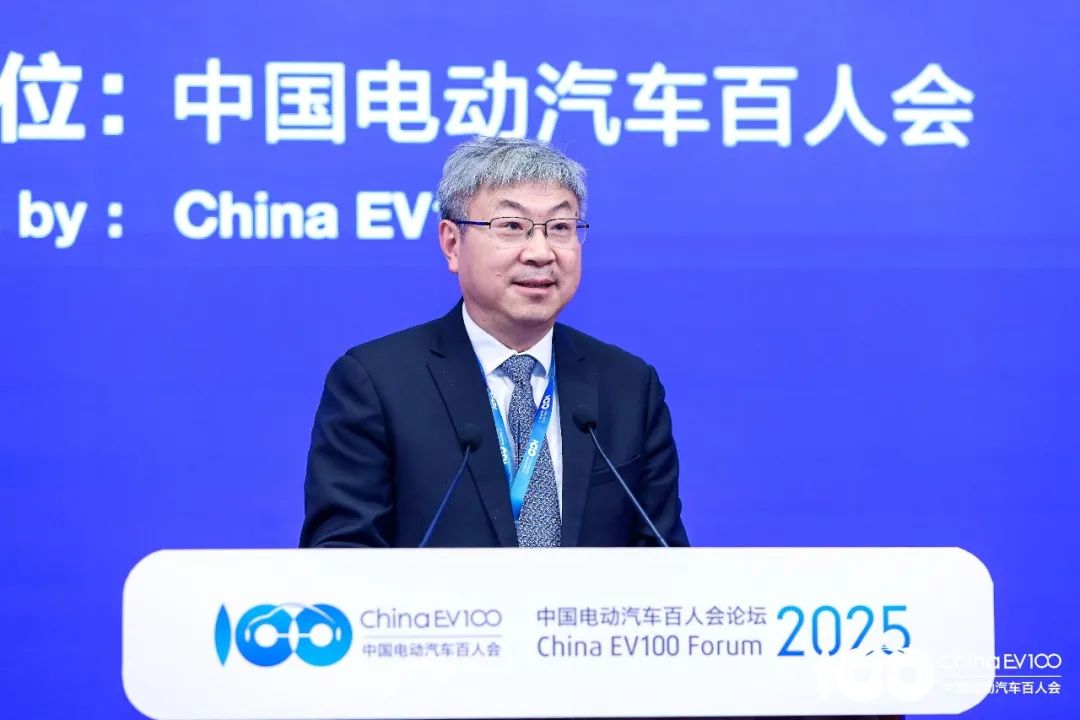
On March 18, Chery Automobile held the "Intelligent Night" event in Wuhu, announcing a series of intelligent achievements such as Falcon Intelligent Driving, humanoid robots, and intelligent cabin large models, and marching towards the equality of intelligent driving.
BYD undoubtedly has the loudest voice in advocating for the equality of intelligent driving. Wang Chuanfu pointed out in his speech that BYD kicked off the year with technology, equipped the entire series with Tian Shen Zhi Yan (an intelligent driving system) in February to enable intelligent driving for all, launched in-vehicle drones and the Super E platform in March, and will build a brand-new travel ecosystem next year.
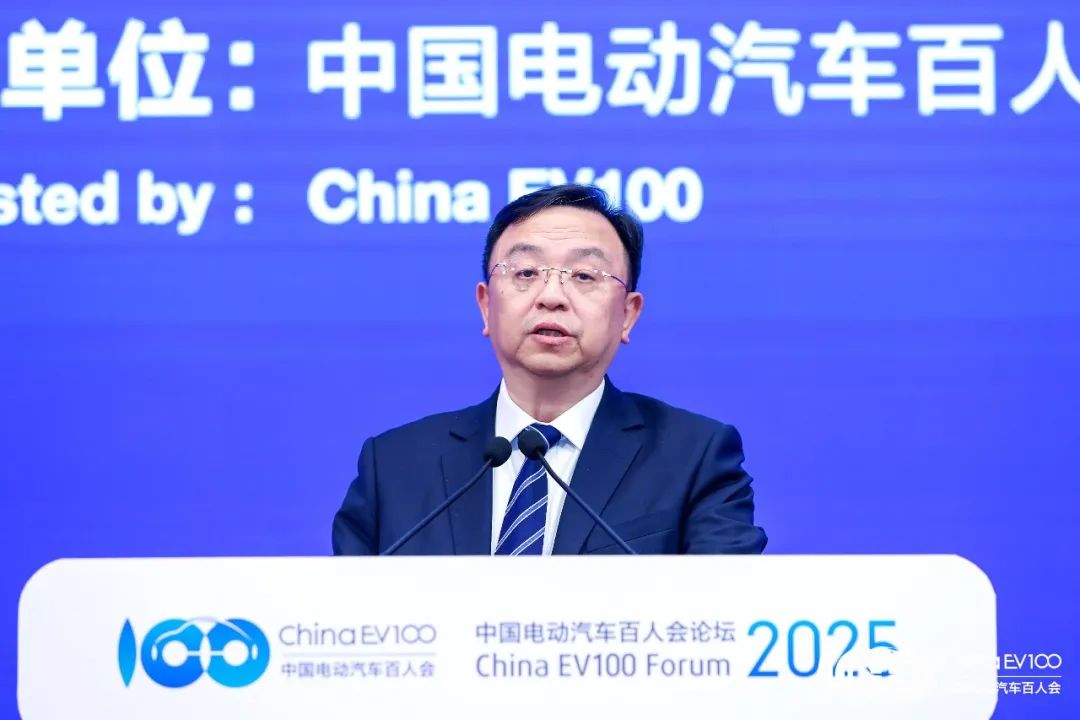
Gan Jiayue responded to what the equality of intelligent driving means in an interview. He emphasized that when introducing intelligent driving functions, safety must be the top priority, and safety requires the support of basic technology infrastructure, including high computing power, large models, and big data.
"It is impossible to make intelligent driving very safe overnight, because it violates the law of development of things. We must promote the development of intelligent driving in accordance with the law of development of things. Intelligent driving without equal safety is a castle in the air with an unstable foundation."
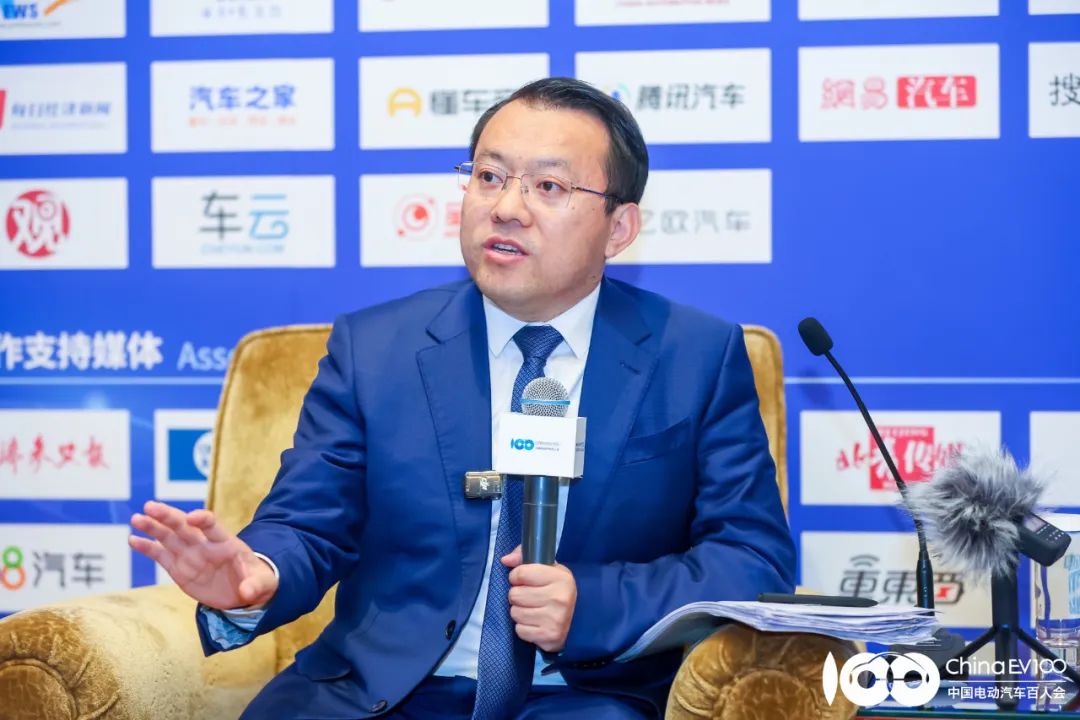
The focus of the first half of the new automotive era is electrification, and the second half is intelligence. Geely is fighting both halves at the same time and has already laid out intelligence during the transition to the three-electric system.
After Lei Jun's speech, Yu Kai couldn't help but exclaim: "I was deeply moved by Mr. Lei's speech: his entrepreneurial spirit, how he creates perfect products..."
"This is an era of new energy vehicles and also an era of the comprehensive rise of domestic brands." Lei Jun's words express the confidence of Chinese automotive brands, and the vitality of independent brands has also driven the explosion and rise of domestic supply chains.
The pattern of the first half is set.
"The stage of a large influx of new carmaking forces is coming to an end. In the stage of intelligent transformation, competition will become more intense. Everyone should be prepared to enter the transitional stage of industrial model transformation and the preparatory stage of mergers and acquisitions." Ouyang Minggao's viewpoint guides automakers to respond to changes in the industry in a timely manner.







